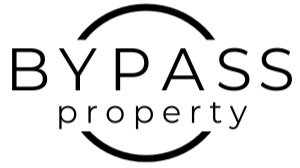Property Investment Quick Guide. What comes after the Purchase?
Congratulations!
You've taken the plunge towards securing your financial future and have moved that enviable rung higher on the property ladder. The hard work is done! You've saved up your deposit, survived the negotiation and successfully navigated the settlement process. Hopefully you've even had a chance to celebrate your achievement.
As the dust starts to settle though, you're going to realise that buying the property was only the first step and now you need to ask "what comes next?".
To help you out, we've put together this quick guide to get you started in the right direction.
Renting your Property
Unless you're uber wealthy, you've probably bought your investment property with the intention of renting it out, using the rental income to pay off your mortgage until a time in the future where it can supplement your income. This is an excellent strategy and one that many investors use to grow substantial property portfolios, however, it requires one of the most undervalued resources for a property investor - great tenants.
Great tenants can make the difference between an investment that causes you headache after headache, while you just get by, versus one that allows you to thrive. To find out the best ways to attract and keep great tenants, keep an eye out for our upcoming article.
For now though, you need to decide whether you will manage your property yourself, or if you will engage a professional property manager. Both can be good options and will depend on your personal circumstances. We will be releasing some articles soon covering the pros and cons of each. Until then, here's a quick summary:
Professional Property Managers can take a lot of the pressure out of finding a tenant and managing your property. Finding a good professional Property Manager can be an excellent investment as they will ensure your property is taken care of, the rent is paid and if any problems arise they can navigate these on your behalf. It’s important to keep in mind that while you can hand over the day operation of your investment to a professional property manager, they are not taking over the responsibility of you achieving your financial goals. You will still need to track, review and optimise your investments. Keeping a close eye on your properties performance will give you the best chance of achieving your financial goals. More on that a little later though...
Self-Managing your property does come with a bit more work but can provide a greater level of control over your property and can result in better cashflow as you aren't having to pay the fees associated with professional property management. For more information about self-managing your property, our guide will be released soon. When managing a property yourself it's essential that you stay on top of things and so we highly recommend using a tool like ByPass's Self-Management portal to ensure you stay organised.
Protecting Yourself
Protecting your assets is an essential part of being a successful property investor. Below are some of the insurances you will need in place when you start renting your property:
Building and Contents Insurance - Hopefully you already have this one in place. It's pretty well known so we won't go into detail about it but effectively it's to cover unexpected events and non-tenant factors which may damage the property. Make sure you check when you need to start this cover as it differs from state to state.
Landlord Insurance - covers tenant related risks such as damage to your property and loss of rental income. While you can minimise these risks by carefully selecting tenants, you'll still definitely want this one in place.
Public Liability Insurance - this is to cover legal expenses if an incident occurs on your property. It's often included in landlord insurance policies.
In addition to insurance, you can help to protect yourself by always formalising lease agreements and complying with all state and territory requirements. For example, rental properties have strict requirements for smoke alarms so make sure to check what you need to do.
Track your Progress
One of the biggest mistakes many property investor make is that once they've purchased a property they never properly review it's performance, instead closing their eyes and hoping that the area they purchased in increases in value.
This means that they often have no real idea how their investment is actually performing, how much it makes (or more likely costs) each month, whether it's increased in value, or what their long term projections look like. Unfortunately this often leads to disappointment when, in a few years, they realise that the value hasn't increased as much as they had hoped, and they’re still having to find additional money each month to offset all the costs which keep popping up.
Through the power of compounding, there is a huge difference between an investment that returns 5% year on year, verses one that returns 10% year on year (if you don't believe us we'll cover this in a future article!) and so rather than the "close your eyes and hope" strategy, successful investors closely monitor their properties performance. They're aware of key metrics which allow them to plan ahead to cover expenses in the short term and take advantage of opportunities in the long term.
Fortunately, using a professional portfolio management platform like ByPass allows you to accurately stay on top of these items quickly and simply. To sign up for a free account, click here.
Maximise your Returns
Along with tracking your properties progress, successful investors will continually look for ways to improve their investment returns. This could be as simple as ensuring that the rent being charged is at the market rate, or may be through more advanced strategies such as a renovation or development. Real estate really is a game of finance with some property thrown in so knowing exactly where you stand really can mean the difference between an early retirement and falling back to hoping for a lotto win.



